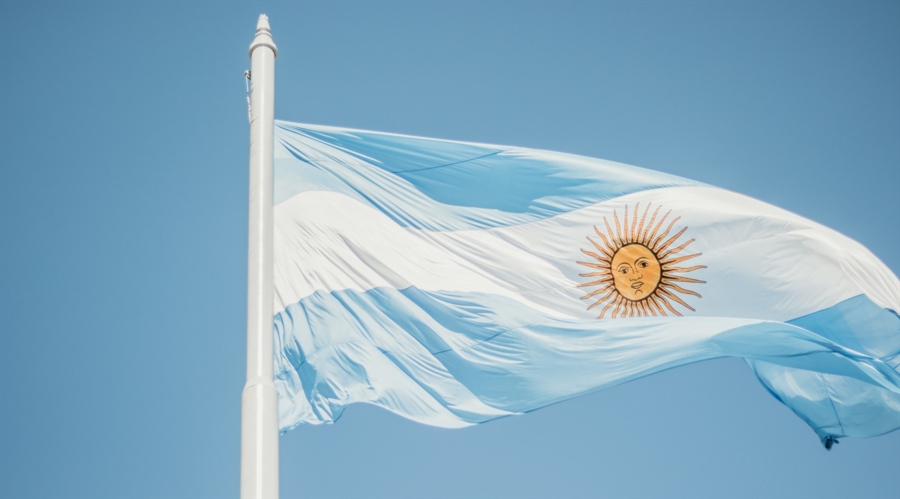The government in Argentina has mandated the registration of cryptocurrency exchanges and other companies in the sector by creating a registry of virtual asset service providers (VASP). The regulations came when the country’s President, Javier Milei, was seen as a proponent of cryptocurrencies but is now facing criticism.
Argentina moved forward with the new cryptocurrency regulations on March 14 as the country’s senate approved modifying laws around anti-money laundering (AML) and combatting the financing of terrorism (CFT).
“Javier Milei makes his first major mistake,” tweeted Max Kieser, a Bitcoin proponent and an advisor to El Salvador’s President. Nayib Bukele. El Salvador became the first nation to adopt Bitcoin and officially give it legal tender status.
“He never took the time to understand #Bitcoin; now he’ll suffer the consequences,” Kieser continued, criticizing the decision of Argentina’s President, who came to power after winning the economically stressful country’s elections in November 2023.
Javier Milei makes his first major mistake.
He never took the time to understand #Bitcoin, now he’ll suffer the consequences. https://t.co/P2arqfxrE2
— Max Keiser (@maxkeiser) April 1, 2024
A Bitcoin-Bull President
After winning the election, President Milei-led government officially legalized the use of Bitcoin and other cryptocurrencies for contract settlements and payments. However, the decree did not specifically mention cryptocurrencies; instead, it included provisions that grant individuals and businesses the freedom to choose their preferred mode of payment, even if it’s not recognized as legal tender in Argentina.
Transacting Bitcoin in Argentina… pic.twitter.com/GwFH1dZgDT
— Rebel Capitalist Pro (@RebelCapPro) April 3, 2024
The South American country’s securities regulator, Comisión Nacional de Valores (CNV), clarified last week that the new rules would align Argentina with the Financial Action Task Force’s (FATF) recommendations around AML and CFT requirements. The CNV’s President, Roberto Silva, also clarified that unregistered VASPs “will not be able to operate in the country.”
Argentina is struggling with hyperinflation and a weakened economy. According to the official figures, the country’s annual inflation soared 211.4 percent in 2023, the highest rate in 32 years from 95 percent a year before. The country’s currency was also devalued by 50 percent.
The government in Argentina has mandated the registration of cryptocurrency exchanges and other companies in the sector by creating a registry of virtual asset service providers (VASP). The regulations came when the country’s President, Javier Milei, was seen as a proponent of cryptocurrencies but is now facing criticism.
Argentina moved forward with the new cryptocurrency regulations on March 14 as the country’s senate approved modifying laws around anti-money laundering (AML) and combatting the financing of terrorism (CFT).
“Javier Milei makes his first major mistake,” tweeted Max Kieser, a Bitcoin proponent and an advisor to El Salvador’s President. Nayib Bukele. El Salvador became the first nation to adopt Bitcoin and officially give it legal tender status.
“He never took the time to understand #Bitcoin; now he’ll suffer the consequences,” Kieser continued, criticizing the decision of Argentina’s President, who came to power after winning the economically stressful country’s elections in November 2023.
Javier Milei makes his first major mistake.
He never took the time to understand #Bitcoin, now he’ll suffer the consequences. https://t.co/P2arqfxrE2
— Max Keiser (@maxkeiser) April 1, 2024
A Bitcoin-Bull President
After winning the election, President Milei-led government officially legalized the use of Bitcoin and other cryptocurrencies for contract settlements and payments. However, the decree did not specifically mention cryptocurrencies; instead, it included provisions that grant individuals and businesses the freedom to choose their preferred mode of payment, even if it’s not recognized as legal tender in Argentina.
Transacting Bitcoin in Argentina… pic.twitter.com/GwFH1dZgDT
— Rebel Capitalist Pro (@RebelCapPro) April 3, 2024
The South American country’s securities regulator, Comisión Nacional de Valores (CNV), clarified last week that the new rules would align Argentina with the Financial Action Task Force’s (FATF) recommendations around AML and CFT requirements. The CNV’s President, Roberto Silva, also clarified that unregistered VASPs “will not be able to operate in the country.”
Argentina is struggling with hyperinflation and a weakened economy. According to the official figures, the country’s annual inflation soared 211.4 percent in 2023, the highest rate in 32 years from 95 percent a year before. The country’s currency was also devalued by 50 percent.

